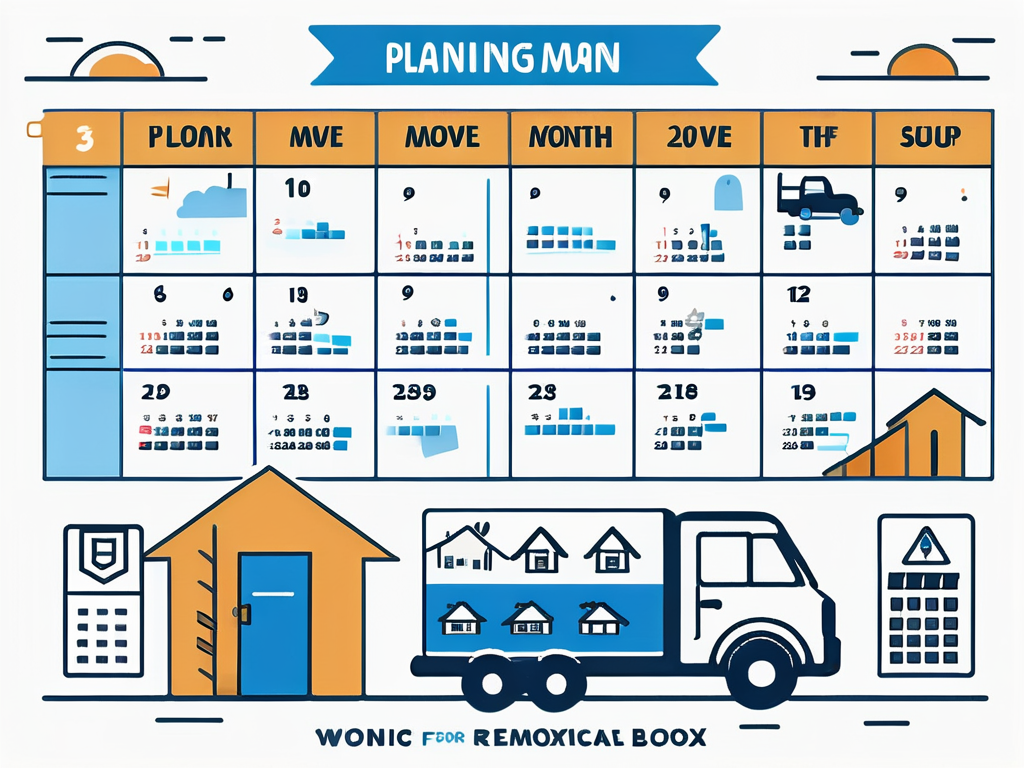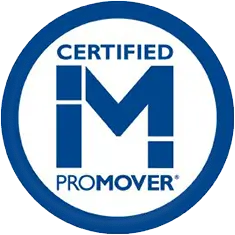Relocating to a new home can be both exciting and overwhelming. Whether you’re moving within the same city or to a completely different state, having a detailed relocation checklist can make the entire process much smoother. This month-by-month planning guide will provide you with invaluable insights and steps to take, ensuring that you are well-prepared every step of the way.
Understanding the Importance of a Relocation Checklist
A relocation checklist serves as a roadmap for your move. It outlines everything you need to accomplish, helping to keep you organized and on track during this transitional period. By having a clearly defined plan, you can minimize stress and ensure that nothing is overlooked.
Moreover, a well-prepared checklist can help you allocate your time and resources effectively. When you know exactly what tasks need to be done and when, you can avoid last-minute surprises that often accompany relocations. This foresight allows you to schedule tasks in a way that suits your lifestyle, ensuring that your move fits seamlessly into your daily routine rather than becoming a disruptive event.
In addition to practical tasks, a checklist can also serve as a tool for emotional preparation. Moving can be a significant life change, and being organized can help you feel more in control during this transition. It provides a sense of accomplishment as you check off completed tasks, which can boost your confidence and reduce anxiety. Furthermore, it can be beneficial to involve family members in the checklist process, allowing everyone to share their thoughts and feelings about the move, thus fostering a supportive environment.
Why Planning Ahead Matters
Planning ahead is crucial when it comes to relocating. Starting your preparations early means that you can take the necessary time to research, pack, and organize without feeling rushed. This is especially important for ensuring that all logistical details are managed effectively, such as hiring movers or coordinating travel arrangements. By giving yourself ample time, you can also explore various moving options, whether it’s renting a truck for a DIY move or hiring a full-service moving company, allowing you to choose what best fits your needs and budget.
Furthermore, advance planning allows for better budgeting. By knowing what expenses to expect, you can allocate funds appropriately and avoid the financial strain that often accompanies sudden, unplanned costs. It’s also wise to set aside a contingency fund for unexpected expenses that may arise during the moving process, such as repairs in your new home or last-minute purchases for packing supplies. This proactive approach not only eases financial stress but also helps you maintain peace of mind as you navigate your relocation.
Key Factors to Consider in Relocation
- Timing of the Move: Consider peak moving seasons and your personal schedule.
- Cost: Evaluate moving expenses, including hiring professionals, transportation, and new housing costs.
- Accessibility: Ensure that your new home is accessible to necessary amenities such as grocery stores, schools, and healthcare.
- Emotional Readiness: Assess your emotional preparedness for the move and the adjustment period that follows.
Taking the time to carefully consider these factors will ensure a smoother transition. Additionally, it’s important to research the neighborhood you’re moving into. Understanding local culture, community resources, and available services can greatly enhance your settling-in experience. Engaging with future neighbors or local community groups online can also provide valuable insights and help you feel more connected before you even arrive.
Another aspect to consider is the impact of your move on your daily routine. Whether it’s finding new schools for your children, locating a new gym, or identifying nearby parks, understanding how your lifestyle will change can help you adjust more easily. Creating a list of local attractions and services can also serve as a fun way to explore your new area once you’ve settled in, making the transition feel more like an adventure rather than a chore.
Starting Your Relocation Journey: 3 Months Prior
As you embark on your relocation journey, the three-month mark is an ideal time to begin taking significant steps. During this timeframe, focus on initial preparations and strategizing how to approach your move.

This is also when you can begin to gather all necessary resources and documents that will facilitate your move. Establishing an organized system will make tasks easier as the moving date approaches.
Sorting and Decluttering Your Belongings
One of the first tasks you should complete is sorting through your belongings. Take the time to evaluate which items you want to keep, donate, or discard. Decluttering your living space not only makes packing easier but also can reduce moving costs.
To simplify this process, consider using a systematic approach such as the “Four-Box” method—label boxes as “Keep,” “Donate,” “Sell,” and “Trash.” This will help you quickly categorize each item and make informed decisions about what to take with you.
Researching Your New Location
In addition to sorting belongings, it’s essential to research your new location. Familiarize yourself with local neighborhoods, schools, healthcare facilities, and amenities in your prospective area. This knowledge will not only make the transition smoother but will also help you feel more at home once you move.
Utilizing online platforms and community forums can be particularly beneficial in gathering insights about your new location. Reach out to locals and seek recommendations on schools, parks, and other community services.
Two Months Out: Organizing and Preparing
When you reach the two-month mark, it’s time to refine your relocation plans and start tackling more specific tasks. This is the period where your preparations should become increasingly detailed and systematic.
Focus on maintaining momentum from the previous month to ensure that you stay on track and avoid any last-minute chaos.
Hiring a Moving Company
If you plan to hire a moving company, start contacting several to obtain quotes. Be sure to check reviews and ask for recommendations from friends or family to find a trustworthy and reliable team.
Once you’ve chosen a moving company, confirm your moving dates and review the details of your contract thoroughly. This contract should include all the services provided, costs, and any insurance your belongings might require during the move.
Updating Your Address and Other Essentials
Ensuring that your address is updated across various institutions is less thrilling but equally important. Be sure to inform your bank, utility companies, and any subscription services about your change of address.
Additionally, don’t forget to update your address with the postal service. This will help you manage your mail effectively and ensure that you don’t miss any important correspondence during your transition.
One Month to Go: Final Preparations
With only a month left until moving day, it’s crucial to start finalizing your plans and preparing for the actual move. This is when the buildup of excitement often coincides with an increased sense of urgency.
Maintaining focus on completing tasks will make the upcoming transition smoother and more manageable.
Packing Your Belongings
Packing is perhaps one of the most time-consuming aspects of moving. Start by gathering packing supplies, including boxes, tape, bubble wrap, and markers. Efficient packing involves more than just throwing items into boxes; it requires systematic organization.
Consider packing room by room and clearly labeling each box with its contents and the room it belongs to in your new home. This will save you time and energy when unpacking later on.
Saying Goodbye to Your Old Home
As you approach the final days in your current residence, take some time to say goodbye. This emotional step can help you process the transition while also allowing you to commemorate memories in your old space. Consider hosting a farewell gathering with friends and neighbors.
Additionally, make an effort to document your old home through photographs or journals. Such memorabilia can serve as a cherished reminder of the life you built in that space.
The Final Weeks: Last Minute Tasks
The final weeks leading up to your move are both crucial and busy. By this point, most of the heavy lifting should be finished, but there are still several last-minute tasks that require your attention.
Stay organized and focused as you approach moving day, and don’t hesitate to lean on friends or family to help during this busy time.
Cleaning and Repairing Your Old Home
Before handing over the keys to your old home, take the time to clean and make any necessary repairs. A clean house not only leaves a good impression on future occupants but may also ensure you receive your security deposit back, if applicable.
Consider hiring a professional cleaning service if time is short. Be sure to leave the space looking spotless, which can provide a sense of closure as you move on to this new chapter in your life.
Preparing Your New Home for Arrival
In the days leading up to your arrival in your new home, prepare to settle in comfortably. Clean the new space and take note of any repairs or changes needed, so they can be addressed right away.
Setting up essential utilities prior to your move-in will also enhance your transition. By ensuring that water, electricity, and internet service are ready when you arrive, you’ll create a more welcoming and functional living environment from day one.
Following this month-by-month planning guide will make your relocation experience significantly easier. With careful preparation and organization, your transition can be a positive and memorable one, paving the way for new adventures and opportunities in your new home.
















